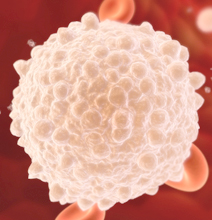Cancer proteomics
The proteome is the collection of all proteins – the functional molecules that coordinate cellular activity - produced in an organism.
Cancer proteomics is the study of the proteome in cancer samples
The last few decades have seen a remarkable development in techniques used for proteomics. These have allowed researchers to compare the proteins in cancer and normal cells, identify those unique to cancer and use them to classify or characterize patients. As result several important biomarkers are now identified, and more are expected to emerge.
Biomarkers are molecules found in blood, other human fluids or in biopsies, that can be used to predict the response –including resistance - to a certain drug, and their discovery paves the way for the development of personalized therapies.
Techniques from proteomics, often together with genetic analysis of the tumor, are also being used to improve our understanding of cancer biology, and help the development of new therapies and diagnostic techniques for cancer.





